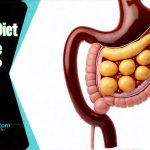The rising popularity of meal replacements, particularly those heavily reliant on fats as their primary macronutrient source, has created a complex landscape for digestive health. While marketed for convenience, weight management, or ketogenic diets, these products can frequently lead to significant stool problems for many individuals. This isn’t necessarily an indictment of all fat-based meal replacements – rather, it highlights the body’s delicate relationship with dietary fat intake and the potential consequences when drastically altering that balance, especially without careful consideration or gradual introduction. Understanding why these issues arise requires looking beyond simple cause-and-effect and delving into the nuances of digestion, gut microbiota, and individual sensitivities.
The core issue lies in the substantial shift from typical Western diets, which often contain a moderate amount of fat alongside carbohydrates and proteins. Fat-based meal replacements frequently prioritize fats – sometimes exceeding 70% or even 80% of total calories – leading to an overwhelming influx for the digestive system. This concentrated fat load can overwhelm bile production (essential for fat emulsification), disrupt normal gut motility, and potentially alter the composition of the gut microbiome, all culminating in a range of unpleasant stool-related effects. It’s crucial to remember that individual responses vary enormously; what one person tolerates easily could cause significant distress for another. This article will explore the common stool problems associated with these meal replacements, their underlying causes, and potential strategies for mitigation—though it is important to consult a healthcare professional before making any dietary changes or if you experience persistent issues. Before making drastic changes, consider looking at top early signs from stool tests that need follow-up to assess your current digestive state.
The Spectrum of Stool Problems
Fat-based meal replacements are frequently linked to a variety of stool abnormalities, ranging from mild discomfort to debilitating symptoms. The most common complaints include diarrhea, steatorrhea (fatty stools), urgency, bloating, gas, and even fecal incontinence in more severe cases. Diarrhea is often the initial response when the digestive system struggles to process such a large amount of fat quickly. Steatorrhea manifests as pale, bulky, foul-smelling stools that may float due to undigested fat content. This isn’t simply an aesthetic issue; it indicates inadequate fat absorption and can lead to deficiencies in fat-soluble vitamins (A, D, E, and K). The urgency associated with these stool problems is often described as a sudden, uncontrollable need to defecate, disrupting daily life and causing significant anxiety. If you’re experiencing discomfort, understanding insights you can get from a basic stool analysis could be helpful.
Bloating and excessive gas are also prevalent side effects, stemming from the fermentation of undigested fats by gut bacteria. This process creates gases like hydrogen, methane, and carbon dioxide, leading to abdominal distension and discomfort. The type of fat used in the meal replacement plays a role; some fats (like medium-chain triglycerides or MCTs) are generally easier to digest than others (like long-chain triglycerides). However, even with readily digestible fats, the sheer volume can overwhelm the digestive system’s capacity. Furthermore, individuals with pre-existing conditions like Irritable Bowel Syndrome (IBS) or gallbladder issues may be particularly susceptible to these adverse effects. Accidental trigger meals can also contribute to this; best ways to recover from an accidental trigger meal are worth reviewing.
Understanding Steatorrhea & Malabsorption
Steatorrhea isn’t simply a consequence of excessive fat intake; it points towards malabsorption, meaning the body isn’t effectively breaking down and absorbing fats from food. This process relies on several key components working in harmony: sufficient bile production, pancreatic lipase (an enzyme that breaks down fats), and a healthy intestinal lining capable of absorbing the resulting fatty acids. Fat-based meal replacements can disrupt each of these steps. A sudden increase in fat intake forces the gallbladder to work overtime, potentially leading to temporary or even chronic insufficiency if it’s unable to keep up with demand.
Pancreatic lipase is crucial for breaking down triglycerides into monoglycerides and free fatty acids – forms that can be absorbed by the intestinal wall. If the pancreas isn’t functioning optimally (due to a pre-existing condition or simply being overwhelmed), fat digestion suffers, leading directly to steatorrhea. Finally, the intestinal lining must be healthy for absorption to occur; conditions like celiac disease or inflammatory bowel disease impair this process, exacerbating malabsorption issues. Identifying the root cause of steatorrhea is essential, as it can indicate underlying health problems beyond just dietary choices. Signs from test results that call for diet overhaul may offer further guidance here.
The Role of Bile & Gallbladder Function
Bile, produced by the liver and stored in the gallbladder, acts as an emulsifier, breaking down large fat globules into smaller droplets that are easier for pancreatic lipase to digest. A high-fat diet demands increased bile production and release. While a healthy gallbladder can typically adapt, rapidly increasing fat intake – like switching to a predominantly fat-based meal replacement – can overwhelm its capacity. This leads to insufficient emulsification of fats, resulting in incomplete digestion and steatorrhea. Individuals who have had their gallbladder removed may experience even more pronounced issues, as they lack the bile storage capacity needed to handle large fat loads.
Furthermore, prolonged stimulation of the gallbladder can sometimes lead to sludging – a buildup of concentrated bile that can obstruct flow and cause discomfort. The composition of fats also matters; certain fats are more readily emulsified by bile than others. For example, saturated fats often require more bile for digestion compared to unsaturated fats. Therefore, even within fat-based meal replacements, the specific types of fats used will influence how well they’re digested and absorbed. It’s important to track changes in your digestive health; key takeaways from tracking digestive data over time can be incredibly valuable.
Gut Microbiota & Fermentation
The gut microbiome – the vast community of bacteria residing in our digestive tract – plays a critical role in digesting food, including fats. While most fat digestion occurs higher up in the small intestine, undigested fats reach the colon where they become substrates for bacterial fermentation. This process produces short-chain fatty acids (SCFAs) which are generally beneficial, but also generates gases like hydrogen and methane that contribute to bloating and flatulence. A sudden shift towards a high-fat diet can dramatically alter the composition of the gut microbiome, favoring bacteria that thrive on fat and reducing those that prefer carbohydrates.
This imbalance – known as dysbiosis – can exacerbate stool problems. Some bacterial species produce more gas than others, leading to increased bloating and discomfort. Furthermore, dysbiosis can impair the production of beneficial SCFAs and compromise gut barrier function, potentially contributing to inflammation and further digestive issues. Probiotic supplementation or dietary strategies aimed at promoting a diverse and balanced microbiome may help mitigate these effects, but they are not always sufficient without addressing the underlying issue of excessive fat intake. Before drastically changing your diet, consider what to expect from a comprehensive stool analysis to gain deeper insights.
It’s important to reiterate that this information is for general knowledge and informational purposes only, and does not constitute medical advice. Always consult with a qualified healthcare professional for any health concerns or before making any decisions related to your health or treatment.


















